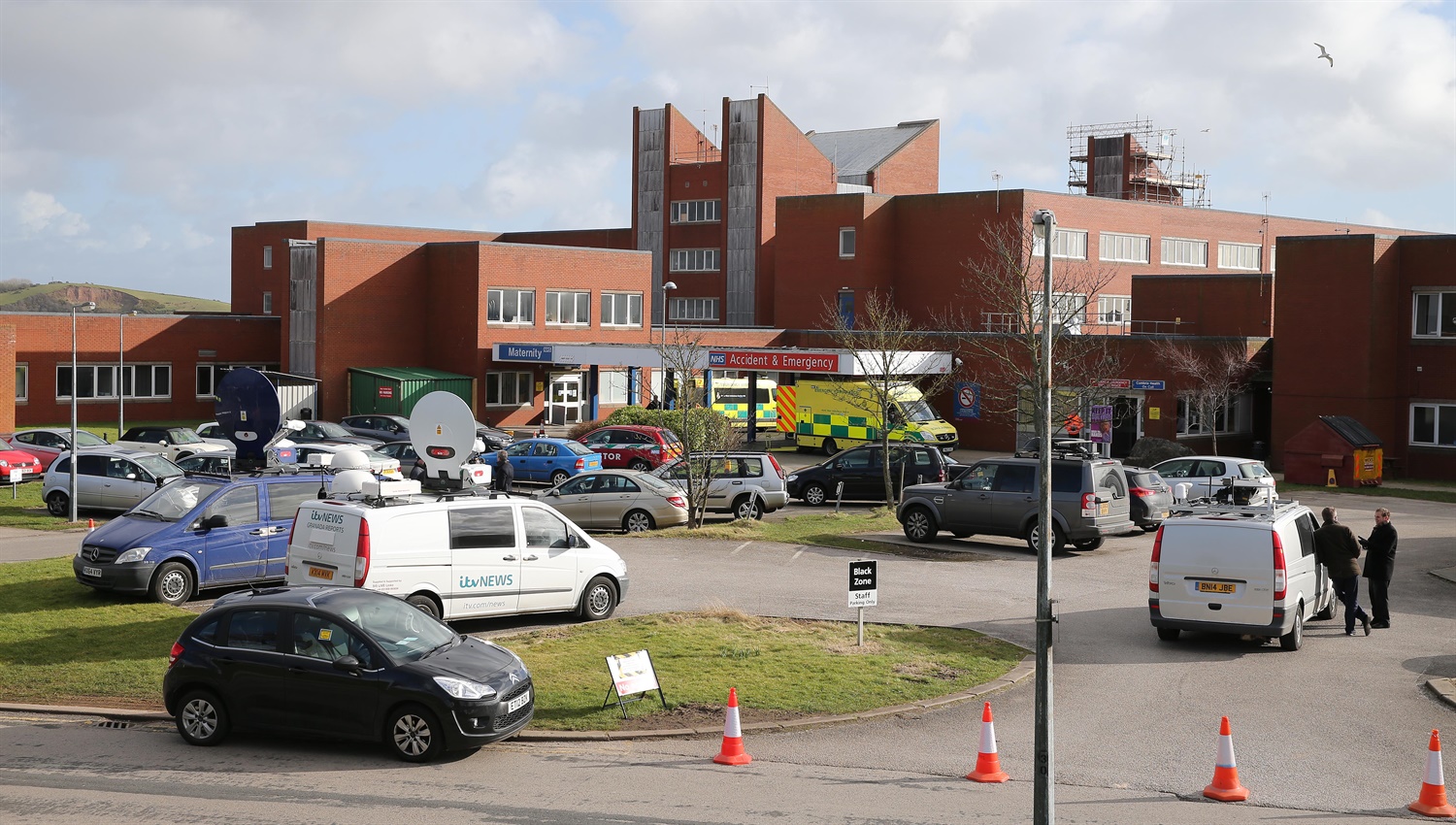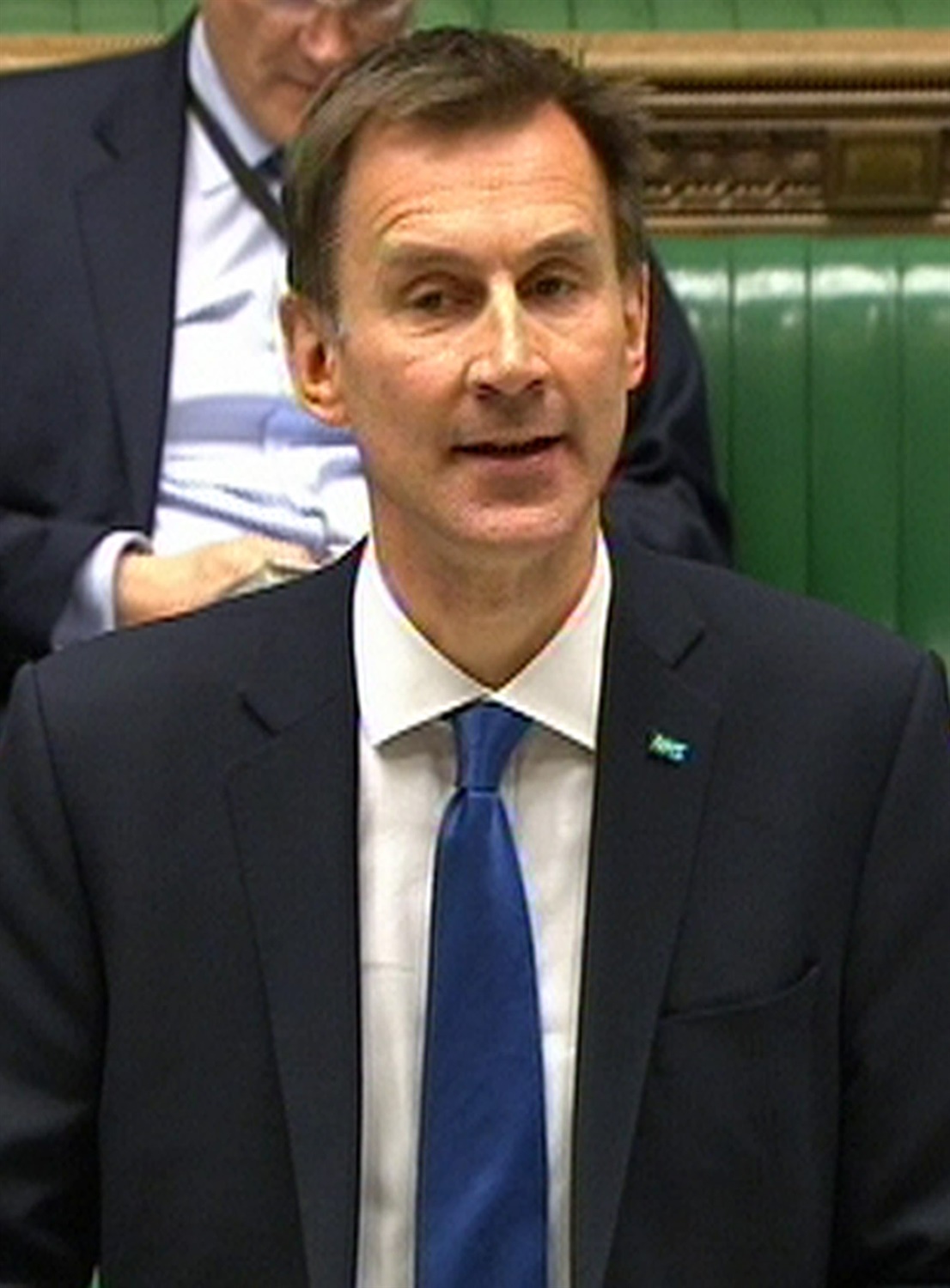04.03.15
Hunt backs rapid response unit to prevent another Morecambe Bay
Jeremy Hunt has backed the establishment of an independent patient safety investigation unit to rapidly investigate serious medical incidents in response to the Morecambe Bay report.
In a statement to Parliament, the health secretary said the NHS is still much too slow at investigating serious incidents involving severe harm or death, and that it could benefit from a service similar to the Air Accidents Investigation Branch of the Department of Transport.
He has asked NHS England’s national director of patient safety Mike Durkin to look into the possibility of creating such a unit.
Hunt made the announcement as part of his response to the inquiry led by Dr Bill Kirkup, which found that a "lethal mix" of failures at University Hospitals of Morecambe Bay NHS Trust led to the unnecessary deaths of 11 babies and one mother.
The investigation into deaths at Furness General Hospital in Barrow between 2004 and 2013 found maternity services to be “seriously dysfunctional” and beset by a culture of denial, collusion and incompetence.
Despite serious incidents as early as 2004, and a series of five separate events in 2008, it was not until 2011 that standards of care on the unit gained wider attention.
This was after criticism from a coroner who led the inquest into the death of newborn Joshua Titcombe. The coroner ruled Joshua had died of natural causes in 2008 but midwives had repeatedly missed opportunities to spot and treat a serious infection.
 (Image: Furness General Hospital. Source: Peter Byrne/PA Wire)
(Image: Furness General Hospital. Source: Peter Byrne/PA Wire)
Around the same time, a report came to light that the trust itself had commissioned. It was produced in early 2010 but "suppressed" by the trust.
However before that, the trust had failed to act on earlier incidents and is said to have even distorted the way information was presented to inquests.
The health secretary said the failings at the hospital amounted to “a second Mid Staffs”. NHS England chief executive Simon Stevens said the report was “truly shocking”.
Hunt said to Parliament: “In short, it was a second Mid Staffs, where the problems, albeit on a smaller scale, occurred largely over the same time period.”
Kirkup wrote in his report: “Our findings are stark, and catalogue a series of failures at almost every level – from the maternity unit to those responsible for regulating and monitoring the trust. The nature of these problems is serious and shocking, and it is important for the lessons of these events to be learnt and acted upon, not only to improve the safety of maternity services, but also to reduce risk elsewhere in NHS systems.”
It goes on to list a number of factors that it said “comprised a lethal mix” which led to the unnecessary deaths of mothers and babies. Some of the factors include substandard clinical competence and poor working relationships, particularly between different staff groups, such as obstetricians, paediatricians and midwives.
Another issue the report cites was a growing move amongst midwives to pursue normal childbirth “at any cost”; there were also failures of risk assessment and care planning that resulted in inappropriate and unsafe care; and the response to adverse incidents was “grossly deficient”, with repeated failure to investigate properly and learn lessons.
The report was also critical of the CQC, regional health authority and health service ombudsman, which had not acted properly on what they knew.
It said there was knowledge of five major incidents in 2009 as the trust had revealed them as part of its application for foundation trust status. Monitor passed these on to the North West Strategic Health Authority and CQC but no regulatory bodies had taken action to fully investigate the disclosures.
In total the report found “at least seven missed opportunities to intervene” from 2008, in which time 10 deaths occurred in which “there were significant or major failures of care”.
Dr Kirkup said: "This was a disturbing catalogue of missed opportunities."
A joint statement from the permanent secretary at the Department of Health and heads of the CQC, Monitor, NHS England, and TDA apologised “unreservedly” for the failings.
It said: “Our fundamental purpose is to ensure that every NHS patient is offered safe, honest and compassionate care, but the report is unequivocal that the care provided to some patients in the Morecambe Bay area between 2004 and 2013 fell far short of this. This is a terrible personal tragedy for all of the families involved. We apologise unreservedly for all the appalling suffering that they have endured and extend our condolences to every one of them.”
In his conclusion Kirkup makes 44 recommendations, 18 for the trust and 26 for the wider NHS, including a national review of maternity care and paediatrics in challenging circumstances.
 Hunt said that he expects Morecambe Bay NHS Trust to implement all 18 of the recommendations assigned to them.
Hunt said that he expects Morecambe Bay NHS Trust to implement all 18 of the recommendations assigned to them.
He will also ask Sir Bruce Keogh to review the professional codes for doctors and nurses to ensure the right “incentives” are in place to allow doctors to sound the alarm.
He said: “Within sensible professional boundaries, no one should lose their job for an honest mistake made with the best of intentions. The only cardinal offence is not to report that mistake openly so that the correct lessons can be learned.”
As a result of the events at the Furness hospital seven midwives have been referred to the Nursing and Midwifery Council and two have been dismissed by the trust. Morecambe Bay has undergone changes in management since 2012, and the report said there were now “welcome signs of significant recent improvement” including in maternity services.
Pearse Butler, the chair of the trust board said, “This trust made some very serious mistakes in the way it cared for mothers and their babies. More than that, the same mistakes were repeated. And after making those mistakes, there was a lack of openness from the trust in acknowledging to families what had happened. This report vindicates these families.
“For these reasons, on behalf of the trust, I apologise unreservedly to the families concerned. I’m deeply sorry that so many people have suffered as a result of these mistakes. As the chair of the trust board, it’s my duty to ensure that lessons are learned and that we do everything we possibly can to make sure nothing like this happens again.”
(All images courtesy of PA)
Tell us what you think – have your say below or email [email protected]